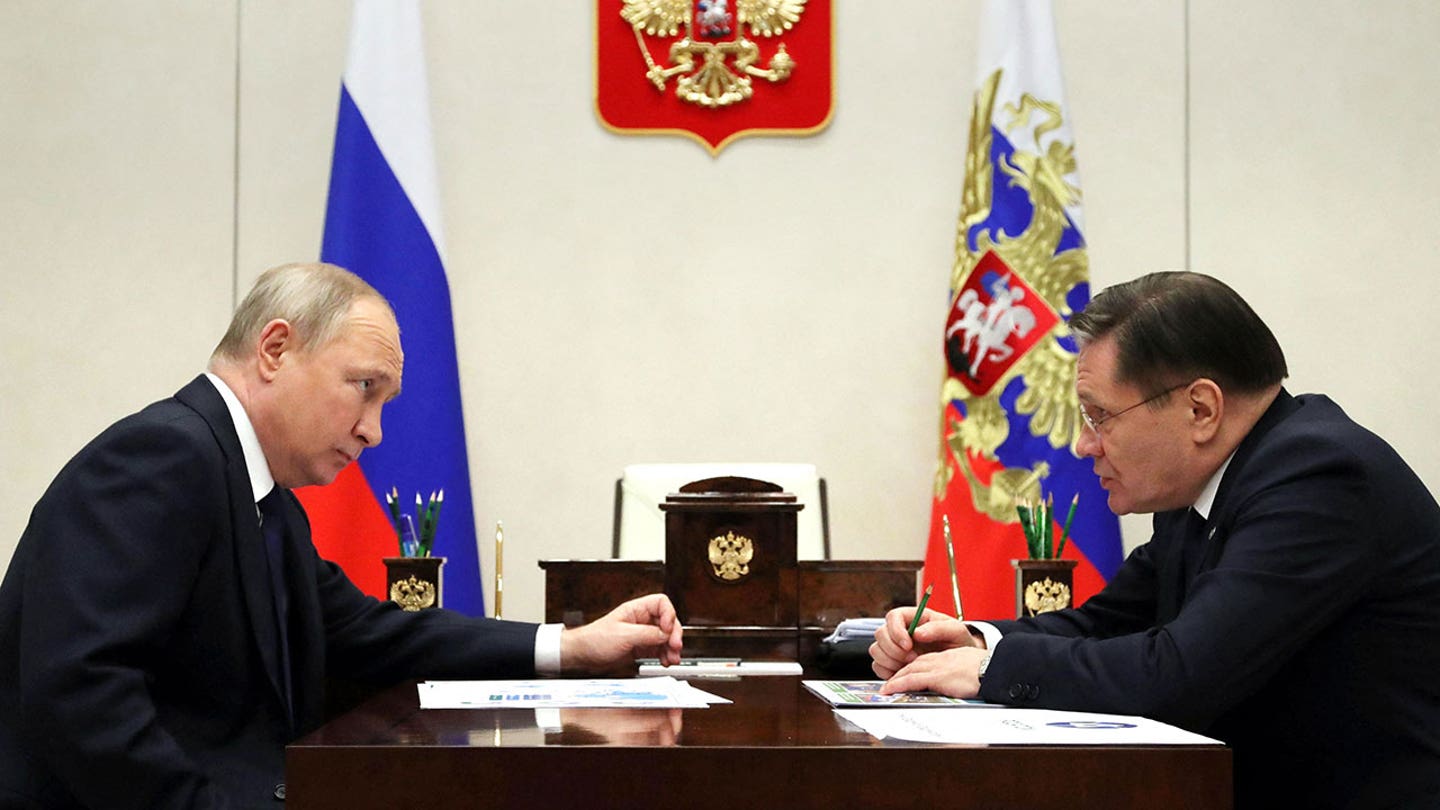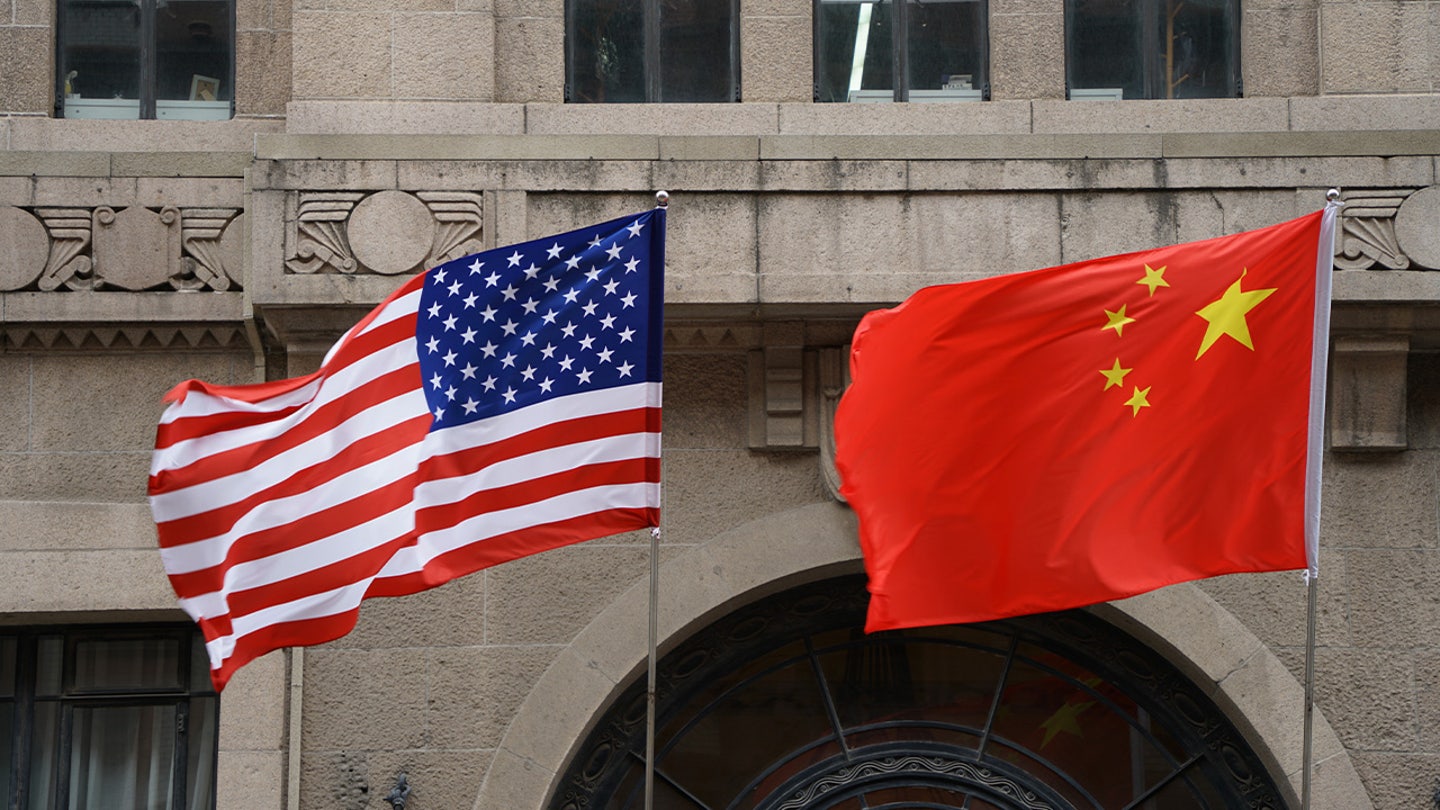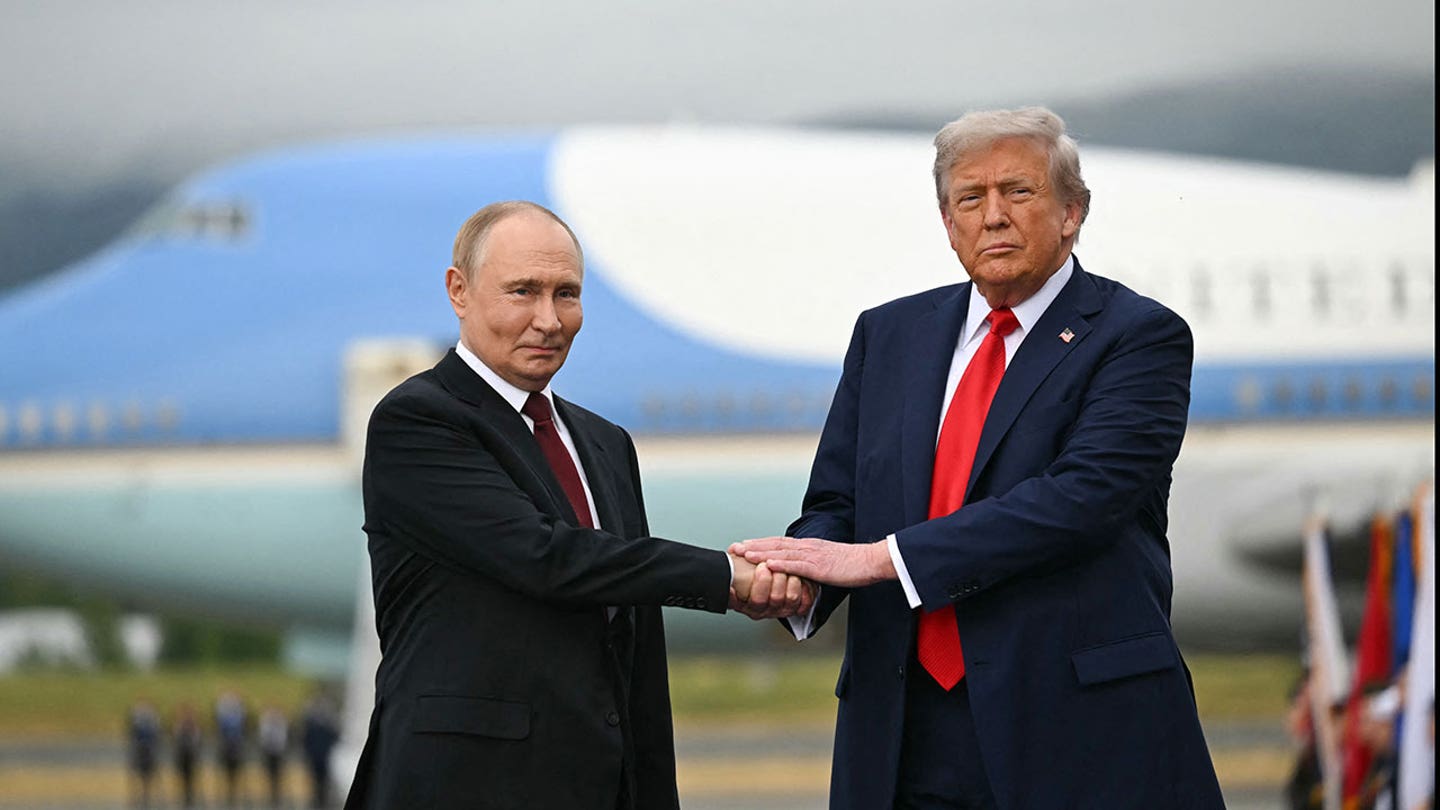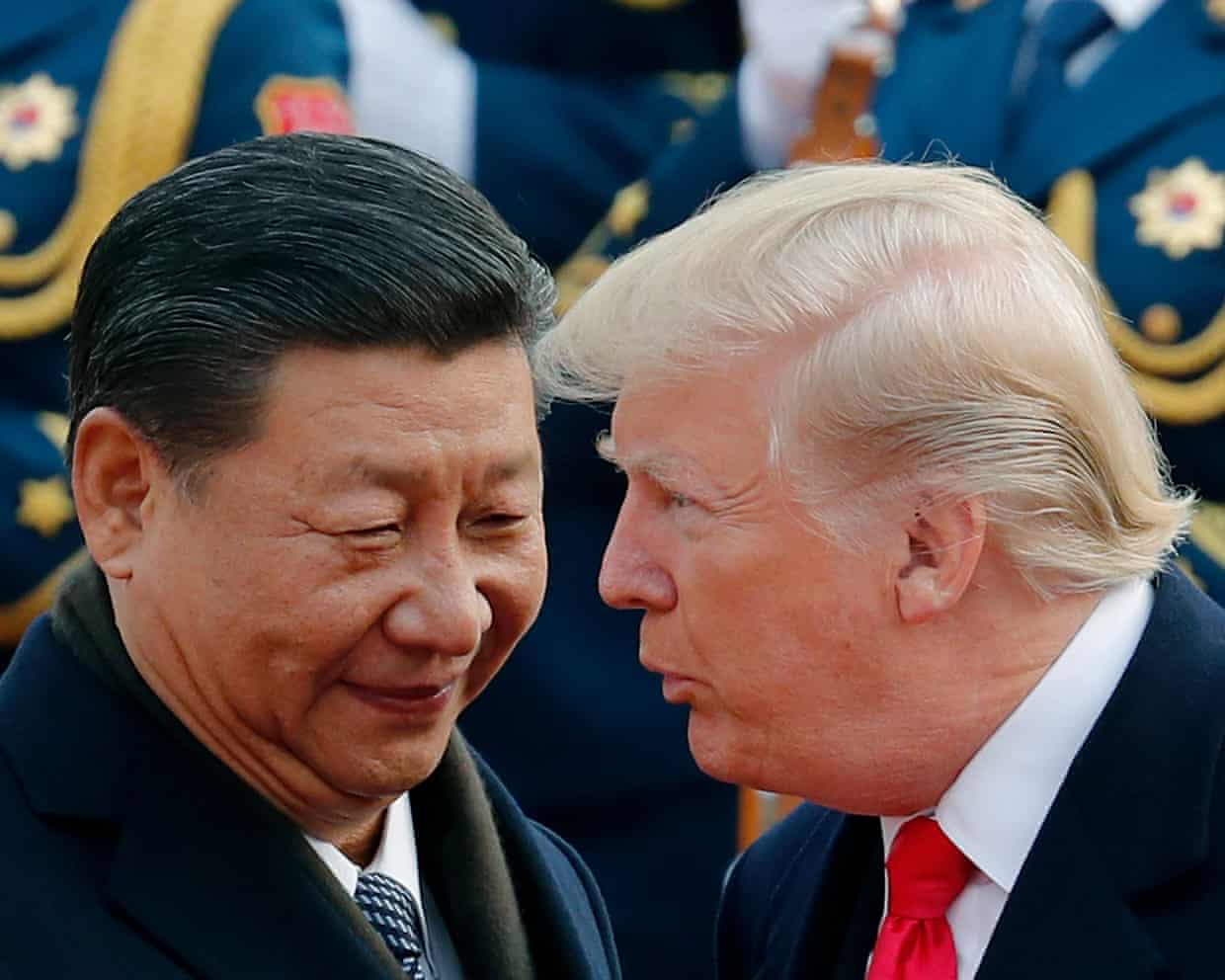
Russia looks to update nuclear program amid ‘colossal threats’ from West
Entities mentioned:
- Alexei Likhachev: Security, Power, Duty
- Vladimir Putin: Power, Security, Influence
- Donald Trump: Security, Competitive spirit, Power
- Russia: Security, Power, Self-preservation
- United States: Security, Influence, Power
- China: Power, Influence, Security
Article Assessment:
Credibility Score: 75/100
Bias Rating: 55/100 (Center)
Sentiment Score: 30/100
Authoritarianism Risk: 55/100 (Mixed/Neutral)
Bias Analysis:
The article presents a relatively balanced view, incorporating perspectives from both Russian and U.S. sources. However, there's a slight lean towards Western viewpoints, particularly in framing Russia's actions as potentially threatening.
Key metric: Global Nuclear Stability Index
As a social scientist, I analyze that this article highlights a concerning trend towards nuclear armament and away from disarmament efforts. Russia's emphasis on upgrading its nuclear capabilities, coupled with similar rhetoric from the U.S., suggests a potential new arms race. This development, along with the uncertain future of the New Start Treaty, could significantly destabilize global nuclear security. The article underscores the tensions between major powers and the use of nuclear capabilities as a geopolitical tool, which may lead to increased global instability and a higher risk of nuclear conflict.

Trump learns a lesson grounded in faith, how best to stand tough on trade with China
Entities mentioned:
- Donald Trump: Power, Determination, Competitive spirit
- China: Control, Power, Competitive spirit
- Steven Mnuchin: Determination, Professional pride, Loyalty
- Rabbi Levi Yitzchok of Berditchev: Righteousness, Faith, Influence
Article Assessment:
Credibility Score: 55/100
Bias Rating: 75/100 (Lean Right)
Sentiment Score: 65/100
Authoritarianism Risk: 55/100 (Mixed/Neutral)
Bias Analysis:
The article leans heavily right, presenting Trump's policies in an overwhelmingly positive light without significant counterarguments. It uses religious rhetoric to support political positions, which is characteristic of right-wing messaging in the US.
Key metric: US-China Trade Balance
As a social scientist, I analyze that this article portrays a continuation of Trump's aggressive trade policies towards China in a hypothetical second term. The focus is on using tariffs and economic pressure to reshape the US-China trade relationship and reduce US dependence on Chinese goods and resources. The article suggests these policies are having some success in reshoring manufacturing and strengthening alliances, but acknowledges short-term economic costs. The integration of religious teachings into trade policy rationale is an unusual element that appears aimed at justifying potentially painful economic measures through appeals to faith and perseverance.

White House joins TikTok after delaying enforcement of sale-or-ban law
Entities mentioned:
- White House: Influence, Recognition, Control
- TikTok: Self-preservation, Influence, Security
- Bytedance: Self-preservation, Control, Security
- Donald Trump: Power, Control, Influence
- Joe Biden: Security, Duty, Control
- United States: Security, Control, Power
- China: Power, Control, Influence
Article Assessment:
Credibility Score: 75/100
Bias Rating: 55/100 (Center)
Sentiment Score: 45/100
Authoritarianism Risk: 40/100 (Generally Democratic)
Bias Analysis:
The article presents a relatively balanced view, incorporating multiple perspectives and historical context. While it leans slightly towards emphasizing the administration's actions, it also includes background on security concerns and bipartisan support for the ban.
Key metric: US-China Relations
As a social scientist, I analyze that the White House's decision to join TikTok amidst ongoing national security concerns and pending legislation reflects a complex interplay of diplomatic, economic, and political factors. This move suggests a potential shift in the US approach to Chinese-owned technology platforms, possibly indicating a desire for engagement rather than isolation. The repeated delays in enforcing the sale-or-ban law demonstrate the administration's struggle to balance national security concerns with the app's popularity and potential diplomatic repercussions. This development could significantly impact US-China relations, as it may be interpreted as a softening stance on Chinese tech influence in the US, potentially affecting broader trade and diplomatic negotiations.

ROBERT MAGINNIS: What comes next for US, Russia and Ukraine after Alaska summit
Entities mentioned:
- Donald Trump: Power, Recognition, Legacy
- Vladimir Putin: Control, Power, Self-preservation
- Volodymyr Zelenskyy: Determination, Justice, Unity
- United States: Influence, Security, Power
- Russia: Control, Power, Self-preservation
- Ukraine: Self-preservation, Freedom, Justice
- NATO: Unity, Security, Influence
- China: Power, Influence, Wariness
Article Assessment:
Credibility Score: 75/100
Bias Rating: 55/100 (Center)
Sentiment Score: 45/100
Authoritarianism Risk: 30/100 (Generally Democratic)
Bias Analysis:
The article presents a balanced view of the summit, offering perspectives from multiple sides. While it leans slightly towards a Western viewpoint, it attempts to provide objective analysis of all parties' motivations and potential outcomes.
Key metric: International Diplomatic Influence
As a social scientist, I analyze that this summit represents a critical juncture in U.S.-Russia relations and the ongoing Ukraine conflict. The meeting, while not producing concrete agreements, establishes a foundation for potential future negotiations. The careful choreography and symbolism of the event underscore its significance in global diplomacy. The article highlights the delicate balance between pursuing peace and maintaining a strong negotiating position, particularly for the U.S. and Ukraine. The emphasis on sanctions as a key leverage point suggests that economic pressure remains a primary tool in international conflict resolution. The involvement of multiple stakeholders, including NATO and European allies, indicates the complex, interconnected nature of this geopolitical situation. The article also points to the broader implications of these negotiations, particularly in terms of global power dynamics and the potential impact on other international actors like China. The analysis provides a nuanced view of the challenges ahead, emphasizing the need for rigorous verification mechanisms and sustained diplomatic efforts.

A China-led global system alongside that of the US is Xi Jinping’s ultimate aim
Entities mentioned:
- Xi Jinping: Power, Influence, Legacy
- China: Power, Influence, Self-preservation
- United States: Power, Control, Influence
- George Magnus: Professional pride, Curiosity, Influence
- Andrew J Sinclair: Professional pride, Wariness, Duty
- Joe Biden: Power, Duty, Influence
Article Assessment:
Credibility Score: 75/100
Bias Rating: 55/100 (Center)
Sentiment Score: 40/100
Authoritarianism Risk: 45/100 (Mixed/Neutral)
Bias Analysis:
The article presents a balanced view, acknowledging both US and Chinese perspectives. However, there's a slight lean towards cautioning about China's ambitions, which could be seen as a centrist or slightly right-leaning stance.
Key metric: Global Economic Influence
As a social scientist, I analyze that this article highlights China's strategic shift from economic growth to building national power and a parallel global system. The author argues that focusing solely on China's economic slowdown underestimates its long-term geopolitical ambitions. China's initiatives like the Belt and Road, CIPS, and 'Made in China 2025' are presented as evidence of its efforts to create an alternative to the US-led global order. This shift has significant implications for the global balance of power and economic influence. The article suggests that even with slower growth, China has the resources and determination to pursue its goal of establishing a China-led global system alongside the US-led one. This perspective challenges the notion of 'Peak China' and implies a continued, if not intensified, great power competition between China and the US in the coming years.

NASA wants US to be the first nation to put nuclear reactor on the moon
Entities mentioned:
- NASA: Ambition, Competitive spirit, Professional pride
- Sean Duffy: Ambition, Competitive spirit, Legacy
- United States: Competitive spirit, Power, Influence
- China: Competitive spirit, Power, Influence
- Russia: Competitive spirit, Power, Influence
- Department of Energy: Professional pride, Duty, Curiosity
Article Assessment:
Credibility Score: 75/100
Bias Rating: 45/100 (Center)
Sentiment Score: 55/100
Authoritarianism Risk: 35/100 (Generally Democratic)
Bias Analysis:
The article presents a balanced view of the situation, including multiple perspectives and factual information. While it focuses on US efforts, it also mentions competing nations' plans, maintaining a relatively neutral stance.
Key metric: Space Technology Leadership
As a social scientist, I analyze that this article highlights the escalating space race between the United States and its competitors, particularly China and Russia. The push for placing a nuclear reactor on the moon represents a critical technological advancement that could determine future lunar exploration capabilities and geopolitical influence in space. NASA's urgency in this matter reflects concerns about falling behind in space technology and potentially losing access to strategic lunar locations. This development could significantly impact the US's position in space exploration, scientific advancement, and global technological leadership. The initiative also underscores the increasing militarization and commercialization of space, raising questions about international space law and cooperation in the future.